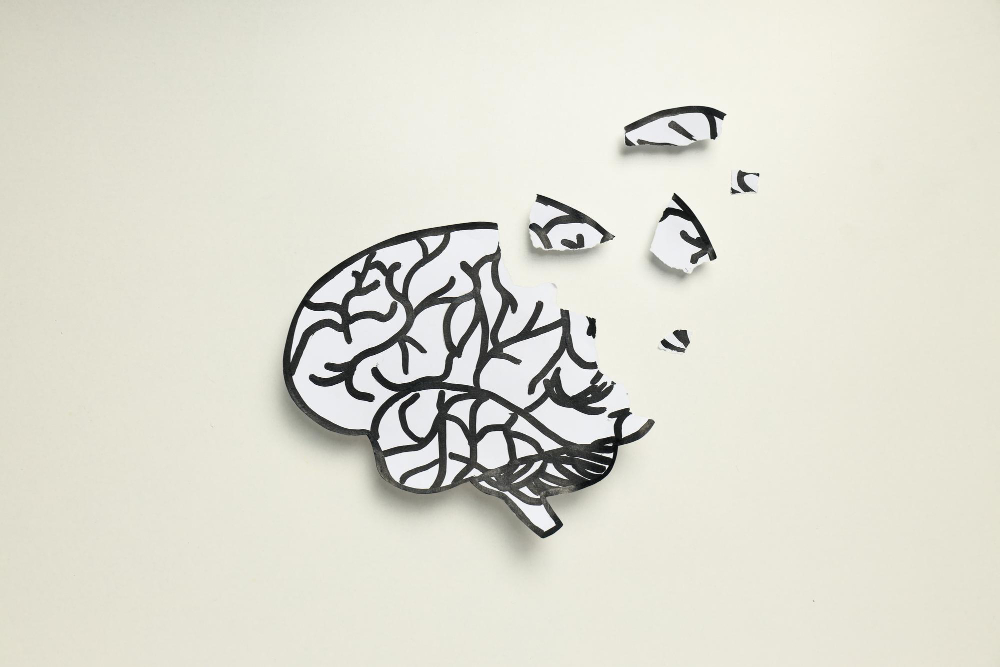TBI
What is a Traumatic Brain Injury?A TBI is a type of head injury that occurs when a sudden blow or jolt to the head causes damage to thebrain.TBIs can occur due to various causes, such as falls, motor vehicle accidents, sports-related injuries,or assaults. The brain can sustain damage froma bruise,abrain bleedtowidespread damage whichresultsin physical and functional changes.A common form of brain injuryis called a contusion, whichare localized areas of bruising and bleeding within the brain tissue which can cause damage to specificbrain regions and disrupt normal functioning. Another form of brain damage is a concussion which isinvolves temporary disruption of brain function. It can result froma bump, blow or jolt to the head.According to the Brain Injury Association of America, approximately 80% of individuals who suffer atraumatic brain injury (TBI) do not lose consciousness.This means that the majority of TBIs are classifiedas mild traumatic brain injuries (mTBIs).The Centers for Disease Control and Prevention (CDC) also report that between 2006 and 2014, therewas a 47% increase in the number of emergency department visits for mTBIs. In 2014 alone,approximately 2.5 million emergency department visits, hospitalizations, and deaths were associatedwith TBI.Do You have a TBI?Did you hit your head, or suffer a whiplash or can’t remember some or all of the accident? Then yes, youvery likely suffered a traumatic brain injury.Did you have nausea or vomiting after the accident along with head pressure? Then yes, you may havesustained a brain injury.Months later, do you find yourself confused, thinking slower, and having mood swings for no reason?Then yes, you may have a brain injury.Here are some lesser-known facts about traumatic brain injuries (TBIs):
1. Hidden Symptoms: Not all symptoms of a TBI are immediately apparent. While some symptoms, suchas loss of consciousness or memory loss, may be evident right after the injury, other symptoms likemood changes, cognitive difficulties, or sleep disturbances can appear or worsen over time.
2. Impact on Sensory Systems: TBIs can affect various sensory systems beyond cognitive and motorfunctions. Individuals with TBIs may experience changes in vision, hearing, taste, smell, or touchsensitivity. These sensory disruptions can significantly impact daily functioning and quality of life.
3. Emotional and Behavioral Changes: TBI scan lead to emotional and behavioral changes that may notbe obvious to others. Individuals may experience increased irritability, impulsivity, emotional volatility, or difficulty regulating emotions. These changes can strain personal relationships and make social interactions challenging.
4. Increased Risk of Mental Health Issues: Individuals with TBIs are at a higher risk of developing mental health issues, such as depression, anxiety, post-traumatic stress disorder (PTSD), and substance abuse. It’s essential to address both the physical and psychological aspects of a TBI during treatment and recovery.
5. Impact on Sleep: TBIs often disrupt sleep patterns. Individuals may experience difficulties falling asleep, staying asleep, or suffer from excessive daytime sleepiness. Sleep disturbances can further exacerbate cognitive problems and hinder the recovery process.
6. Post-Concussion Syndrome: Some individuals experience a condition known as post-concussion syndrome (PCS) following a TBI. PCS involves a constellation of symptoms, including headaches, dizziness, fatigue, memory problems, and mood changes, that persist beyond the typical recovery period. It can last for weeks, months, or even longer.
Additionally, research has shown that the long-term effects of mTBIs can be just as severe as those ofmore severe TBIs, and can lead to long-term disability. It is important for individuals who suspect theymay have suffered a TBI to seek medical attention, even if they did not lose consciousness during theincident.Traumatic brain injuries (TBIs) can have a profound impact on a person’s life, leading to cognitive,emotional, and physical impairments that can last for years or even a lifetime. If you or a loved one hassuffered a TBI as a result of someone else’snegligence, you may be entitled to compensation for yourbrain injury. At Accident Queen we know that eachTBI is unique, and recovery varies greatly fromclientto client. Factors like the severity and location of the injury, age, overall health, and access torehabilitation resources all play asignificantrole in the recovery process.Once you understand thesymptoms of your brain injury, your medical team can tailor treatment plans and ongoing supportthatare crucial for optimizing your outcome.
Additionally, research has shown that the long-term effects of mTBIs can be just as severe as those ofmore severe TBIs, and can lead to long-term disability. It is important for individuals who suspect theymay have suffered a TBI to seek medical attention, even if they did not lose consciousness during theincident.Traumatic brain injuries (TBIs) can have a profound impact on a person’s life, leading to cognitive, emotional, and physical impairments that can last for years or even a lifetime. If you or a loved one hassuffered a TBI as a result of someone else’s negligence, you may be entitled to compensation for yourbrain injury. At Accident Queen we know that each TBI is unique, and recovery varies greatly from client to client. Factors like the severity and location of the injury, age, overall health, and access torehabilitation resources all play a significant role in the recovery process. Once you understand the symptoms of your brain injury, your medical team can tailor treatment plans and ongoing support that are crucial for optimizing your outcome.
Type of Traumatic Brain Injuries TBIs can range from mild, such as a concussion, to severe, such as a penetrating head injury. Symptomsof a TBI can vary depending on the severity of the injury, but may include headaches, dizziness,confusion, memory loss, andchanges in mood or behavior.Here are some common types of brain injuries:
Concussion: A concussion is a mild form of traumatic brain injury (TBI) that results from a bump, blow, orjolt to the head. It can cause temporary disruption of brain function, leading to symptoms such asheadache, confusion, dizziness, and memory problems. Most people recover fully from a concussion, butit’s essential to seek medical evaluation and follow appropriate protocols for rest and recovery.
Contusion: A contusion is a bruise on the brain, typically caused by a direct impact to the head.Contusions can result in localized bleeding and swelling within the brain tissue, leading to cognitive andphysical impairments specific to the affected area.
Diffuse Axonal Injury (DAI):DAI occurs when there is widespread damage to the brain’s nerve fibers(axons). It is commonly caused by rapid deceleration or rotational forces, such as in car accidents orsports injuries. DAI can lead to shearing or tearing of axons, resulting in widespread disruption of brainconnectivity and potentially severe cognitive and functional impairments.
Penetrating Injury: A penetrating injury occurs when an object, such as a bullet or a fragment, penetratesthe skull and enters the brain tissue. These injuries can cause localized damage and may require immediate surgical intervention to remove the object and minimize further damage.
Cerebral Contusion: Cerebral contusion refers to a specific type of brain contusion that occurs on the surface of the brain. It can result from direct trauma or the brain hitting against the inner skull during animpact. Cerebral contusions often lead to localized bleeding, swelling, and tissue damage.
Hematoma: A hematoma is a collection of blood outside the blood vessels. In the context of brain injuries, two common types are subdural hematoma and epidural hematoma. Subdural hematoma occurs when blood accumulates between the brain and the dura mater (the outermost protective layer of the brain). Epidural hematoma involves blood accumulating between the skull and the dura mater. Hematomas can cause increased pressure on the brain, leading to potentially life-threatening consequences if not promptly addressed.
If you or a loved one has suffered a TBI as a result of someone else’s negligence, you may be entitled tocompensation for your damages. Damages in a TBI case may include:
Medical expenses, including hospital bills, doctor visits, and rehabilitation
Lost wages and future earning capacity
Pain and suffering
Emotional distress
Loss of enjoyment of life
Loss of consortium
At Accident Queen,our experienced traumatic brain injury attorneys understand the complex medical and legal issues involved in TBI cases. We work closely with medical experts and other professionals tobuild strong cases on behalf of our clients and pursue the maximum compensation available.If you or a loved one has suffered a TBI as a result of someone else’s negligence,contact ustoday toschedule a free consultation with one of our experiencedtraumatic brain injuryattorneys. We are hereto help you understand your legal options and fight for your rights.
Our Areas of Practice
Our Areas of Practice
Have you been injured in an accident? You may feel overwhelmed and have a lot of questions on what to do next. Our injury attorneys are ready to help you.












